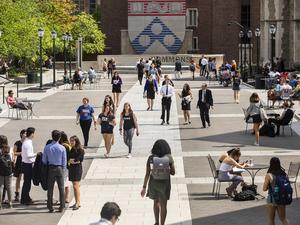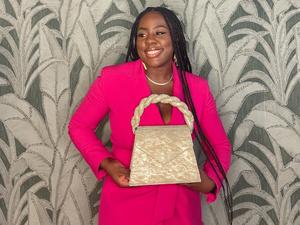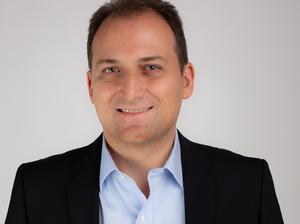When he stepped into Huntsman Hall for his first Wharton School classes in 2010, Douglas Baldasare wasn’t planning to launch a startup before he even graduated.
As an MBA student, he was preparing to spend a few years working in corporate America, even taking an internship at Amazon, before eventually starting his own company. Then everything changed in 2012 when he developed a business plan for a phone-charging kiosk startup in an entrepreneurship class.
Ten years later, Baldasare is now the Wharton Venture Lab’s first entrepreneur-in-residence and his company, ChargeItSpot, has raised $25 million and is expanding its technology portfolio to target the logistics industry.
The Wharton School at the University of Pennsylvania is known for churning out star-studded alumni responsible for some of the most successful modern startups, including Warby Parker, Allbirds and Misfits Market. Former students and faculty attribute the rise in startups at Wharton in recent years to a changing culture at the school that drives entrepreneurship alongside scholarship.
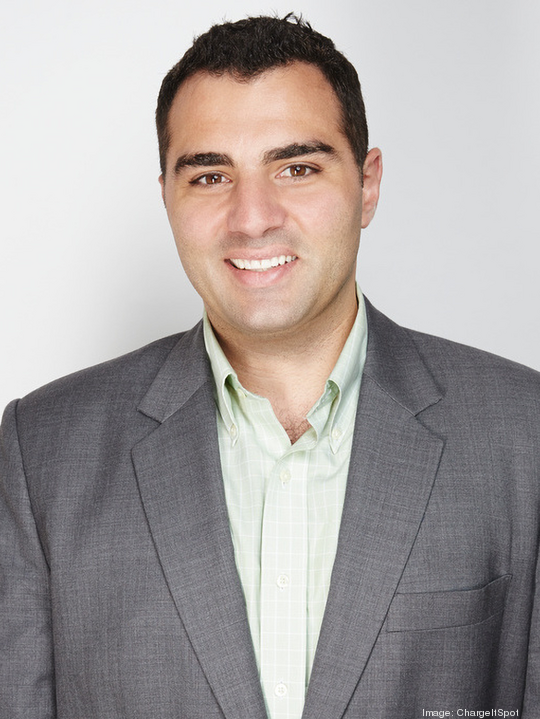
The culture at Wharton wasn’t always so receptive to startups. Though the business school established the Wharton Entrepreneurial Center in 1973 and created its first business plan competition in 1999 — a program that helped launch companies like Warby Parker and loan startup CommonBond — entrepreneurship is still a relatively new emphasis for Wharton students.
Peter Fader, a longtime professor of marketing at Wharton, had First Round Capital Founder Josh Kopelman in his class in 1991. He described Kopelman as an entrepreneur who was “swimming against the tide” of a Wharton culture that at the time largely produced bankers and consultants.
Kopelman founded Infonautics Corp. out of Penn, a company he took public in 1996, and Half.com, a used media reseller that was acquired by eBay in 2000. Kopelman now runs First Round Capital, an early-stage venture capital firm that has invested in companies like Uber, Blue Apron, Ring and Roblox.
“The fact that he was carving out his own path with basically no resources, no support — boy, oh boy, how times have changed,” Fader said.
Penn has since built the 68,000-square-foot Tangen Hall, a $43 million facility at 40th and Sansom streets dedicated to fostering entrepreneurship and student ventures from Wharton, Penn Engineering, the Stuart Weitzman School of Design and beyond. Tangen Hall has five maker spaces, a food innovation lab, a digital media lab, a digital design studio and a retail lab. It opened in 2020.
The university now develops dozens of startup founders each year through both Wharton’s MBA and its undergraduate programs.
Penn ranks No. 3 among the world's top universities for entrepreneurs, with the university producing close to 2,200 founders from its undergraduate and MBA programs combined between January 2006 and October 2021, according to Pitchbook. Each founder’s startup must have received at least a first round of venture funding to be considered for Pitchbook’s ranking. Penn churned out more startup founders during that time than every school but Harvard University and Stanford University, which produced 3,132 founders and 2,866 founders, respectively.
Startups are so deeply embedded in Wharton’s culture these days that it’s unusual for a student to not be involved with one, Fader said. There’s a sense of “FOMO,” or fear of missing out — a symptom of the legacy of other successful Wharton founders, he said.
Baldasare graduated in 2012 alongside other successful founders like William Shu, who took his United Kingdom-based delivery startup Deliveroo public on the London Stock Exchange in 2021.
“When you’re seeing your recent alumni go out and start these businesses that are raising a ton of money … there’s plenty of chatter and it inspires people to take a leap and do it themselves,” Fader said.
It’s not just the Warby Parkers, the Allbirds or the Misfits Markets of Wharton’s elite founder class that students look to, Fader said. It’s other successful companies like insole developer Fulton and dance shoe startup Fuego that help to drive students to pursue entrepreneurship.

“The students become aware of them through the network and say, 'I can at least become that. I could at least justify making this a full-time gig when I get out of school,'” Fader said.
Baldasare largely accredits the early successes of ChargeItSpot to the resources at Wharton. He joined Penn Wharton Entrepreneurship — now known as the Venture Lab — with his startup, and the decision opened doors to professors and staffers that could help find product market fit and test value proposition. The program also brought in investors and lawyers well-versed in IP (that’s how Baldasare found the law firm ChargeItSpot still uses today), while also providing grants to fledgling founders.
Students now have access to funding mechanisms far beyond what their predecessors did, as well as support networks comprising alumni, the Venture Lab and faculty. The Wharton name also carries its own weight and opens doors that students at other schools may not have had the opportunity to open, Fader said.
Penn startups have unique access to a venture capital firm designed to support them. Red & Blue Ventures was formed by a group of Penn alumni in 2016 to fund early stage companies affiliated with the university.
Helmed by Michael Aronson, Red & Blue Ventures has invested in 18 Penn-affiliated startups including AptDeco, The Rounds and NeuroFlow. Red & Blue Ventures invests in startups from all over Penn, particularly those formed at Wharton and in the School of Engineering and Applied Science.
“I’ve met with many entrepreneurs at the cafe outside Huntsman Hall and we have meetings outside,” Aronson said. “It’s like our own little slice of Palo Alto when the weather is decent.”
Penn’s growing startup ecosystem has attracted investors beyond the school and affiliate VC firms, and Red & Blue Ventures has introduced some Wharton companies to follow-on investors, Aronson said.
“We realized early on that it was a great place for startups,” Aronson said. “Now there’s a general awareness of that. You see some of the big-name funds coming into Philadelphia and funding companies that often have ties to Penn.”
PENN-ING THE NEXT CHAPTER
Fader has had his hand in advising plenty of student-built startups in his 35 years as a marketing professor at Wharton.
Fader's seen the rise and fall of startups during the dot-com bubble in the late '90s, mentored dozens of founders and witnessed the meteoric rise of Warby Parker, a venture started by his own students. He has even invested his own money in several student-founded startups.
Fader is a founder himself, having formed his own company, Zodiac, that was acquired by Nike in 2018, and starting his second company Theta shortly after.
Wharton students are well aware of an alumni base that includes the founders of major ventures like Misfits Market, Allbirds and Deliveroo. Those students are now increasingly taking inspiration from the leaders of smaller startups that are finding a competitive fit with their direct-to-consumer ventures, Fader said.
"There are so many who have found a way to at least make a niche for themselves, and hopefully make money too," Fader said.
Here are some of the direct-to-consumer startups founded by Wharton alumni that have carved out their space in recent years:
Burrow
Stephen Kuhl and Kabeer Chopra founded Burrow out of one of their first MBA classes, Introduction to Entrepreneurship. Fed up with expensive, poorly constructed or hard-to-find couches, the duo started a furniture company specializing in modular couches. The New York startup has since gone through the ultra-competitive Y Combinator accelerator and raised funds — including a $25 million Series C in February 2021 — to expand its product lineup and grow the business.
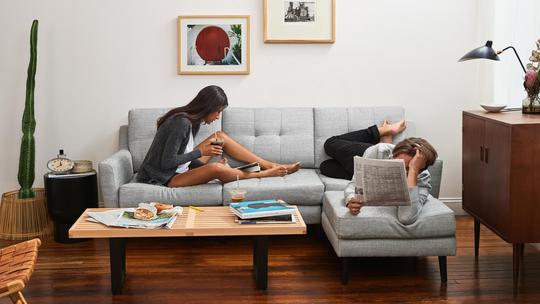
Colugo
One of the only Wharton-founded D2C startups to remain in Philadelphia, Colugo has been dubbed the "Warby Parker of strollers." The startup raised a $4.1 million Series A round in March 2021, a move CEO Ted Iobst said was to build out Colugo's product line, launch on new platforms and hire. Among its investors are Jen Rubio, founder of the Away luggage brand, and Brian Spaly, co-founder of men's apparel brand Bonobos and clothing box subscription Trunk Club.
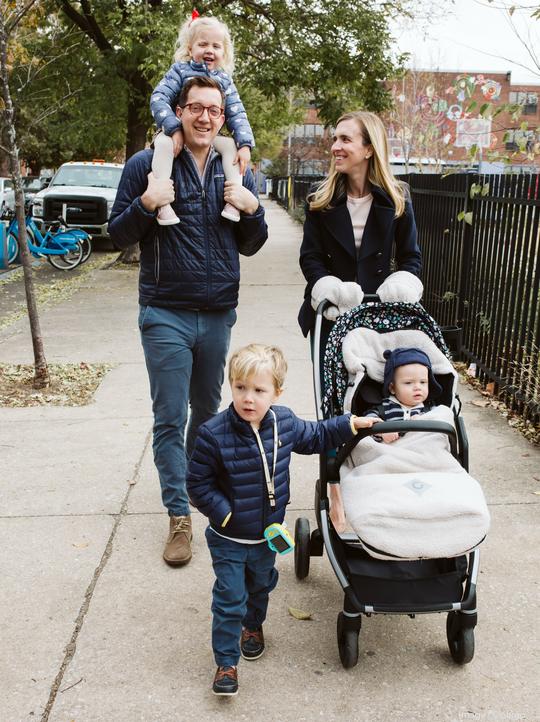
Cotopaxi
Davis Smith and Stephan Jacob participated in the Venture Initiation Program — an incubator for startups built at Wharton — before graduating in 2011. Together they built Cotopaxi, an outdoor gear brand focused on sustainability and community impact. The Salt Lake City-based company sells products like backpacks, outerwear and activewear. The company donates a portion of its sales to nonprofits and is a certified B Corp. The startup reached about $30 million in revenue as of 2020 and most recently secured $45 million from Bain Capital Double Impact fund in September, according to Outside Business Journal.
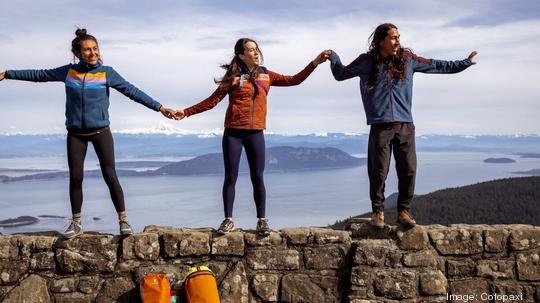
Harry’s
Jeff Raider, of Warby Parker fame, went on to co-found men’s personal care company Harry’s alongside Andy Katz-Mayfield in 2012. The startup manufactures and sells men’s grooming products like razors, body wash, deodorant and hair care. New York-based Harry’s was an acquisition target
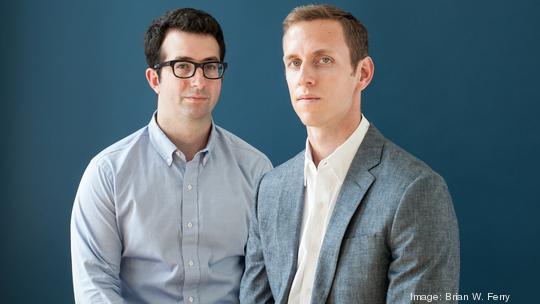
Madison Reed
Madison Reed founder Amy Errett did not launch her at-home hair color startup while she was at Wharton. It was 25 years later the 1988 graduate of the college’s MBA program started Madison Reed, holding positions at companies like E-Trade, Spectrum Group and venture capital firm Maveron LLC in the interim. Madison Reed is now carried at retailers like Ulta and Sephora and has 50 of its own brick-and-mortar “color bars.” Errett was named to Forbes’ 50 Over 50 list in 2021 and was the recipient of the 2019 Penn Wharton Entrepreneurship Alumni Achievement Award. She is also a partner at True Ventures — an e-commerce and consumer startup-focused VC fund.
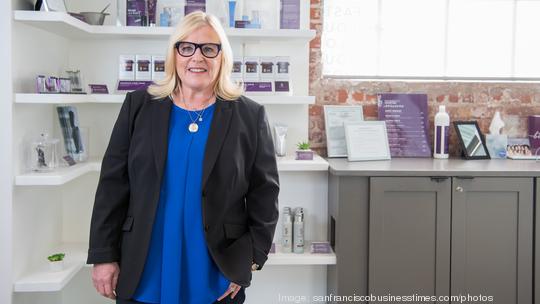
Stone and Strand
Nadine Kahane started Stone and Strand while studying at Wharton for her MBA in 2012. The startup was also selected to join Wharton’s Venture Initiation Program. The New York-based dainty jewelry company officially launched in 2013 and bears the tagline “expensive taste without the mark-up.” Stone and Strand products sell at prices ranging from $20 for a small earring to over $13,000 for a 1.5-carat diamond ring set in platinum.

